By JULIE MINDA
Dr. Eugene William Kennen Jr. says that earlier in his career as an orthopedic surgeon, he was a poster child for physician burnout.
Practicing at a for-profit hospital in Pennsylvania at the time, he was treating a high volume of patients, with continual pressure to increase that load. A self-described overachiever, the physician kept taking on more work, and more stress.
He recalls, "I needed space, and I couldn't get it, and so I just tried to control everything, and ended up shutting everyone out. I had a short fuse. I had road rage. I had 'OR' rage," or operating room rage.
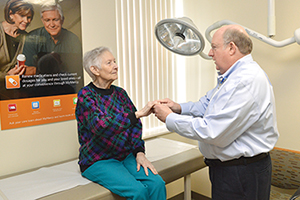
Dr. Eugene William Kennen Jr., an orthopedic surgeon with Mercy Hospital Jefferson in Festus, Mo., treats patient Violet Farmer of Festus. Kennen is helping to shape a physician wellness program at Mercy health system of Chesterfield, Mo.
It took extensive individual and group therapy to understand the burnout, to find ways to cope with the stress of being a physician and to regain a sense of normalcy and peace, Kennen says.
Now an orthopedic surgeon with Mercy Hospital Jefferson in Festus, Mo., Kennen has been sharing his experience with burnout and recovery with a committee at Mercy health system in Chesterfield, Mo. That group developed and is rolling out systemwide physician wellness programming. Mercy's initiatives include a mentoring program, family support, retreats, workshops, online education, apps, formation curriculum and other elements.
The program's goal is to create an "environment for physicians that offers support, intervention and meaning in the healing profession," says Michael Doyle, vice president of mission for Mercy Clinic. That's Mercy's provider group of over 3,500 physicians and advanced practice clinicians.
Inspiration
Mercy divides its four-state service area into three regions. Committees in each region have been developing individual projects to promote physician wellness for several years, such as workshops, seminars and formation events. While these have had some success, several Mercy mission and physician leaders began to coalesce last year around the idea that the system should take a formal approach to physician well-being.
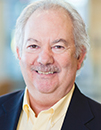
Doyle
A CHA Physician Leader Forum on physician burnout in 2015 provided the final impetus. During the forum, Dr. Jill Kruse of Avera Health of Sioux Falls, S.D., described how a few years ago her struggle with burnout inspired her to help create Avera's program to improve providers' well-being. She is medical director of that program.
Using ideas from the CHA forum, from existing Mercy regional efforts and from other experts in physician well-being, a small team of Mercy leaders created the "Rapha" program to help prevent burnout and promote well-being among Mercy physicians. The Hebrew word Rapha can be translated as "to heal," "healer" or "physician." In addition to Kennen and Doyle, Mercy leaders involved with the effort who spoke to Catholic Health World were Dr. Ray Weick, medical vice president for Mercy Hospital Jefferson; Dr. David Chalk, president of Mercy Clinic's Four Rivers division in Missouri; and Nick Ogle, director of mental and behavioral health at Mercy Northwest Arkansas.
Creating community
Mercy is rolling Rapha out gradually across its regions, with the eastern Missouri region responsible for much of the work.
Rapha eventually is to include:
- Guidance to help people who hire physicians at Mercy to better ensure a close fit with Mercy's mission, vision and culture.
- A four-hour retreat for new physicians. It will include self-assessments, discussion with a Mercy wellness expert and a workshop.
- A program to train seasoned clinicians as mentors and pair the mentors with physician newcomers. Mentors will provide orientation and encourage newcomers in building a strong foundation for personal wellness.
- An online forum for physicians and their families.
- Regular workshops.
- Twice-annual retreats.
- Educational videos.
Mercy also is considering offering physicians with Mercy a year or more an opportunity to take a sojourn in Ireland, the birthplace of the Sisters of Mercy. It may establish a sabbatical program open to doctors with Mercy 10 or more years.
Mercy is developing a protocol for connecting physicians in crisis with a physician mentor and a treatment team to create and implement a treatment plan, which may include drug and alcohol counseling as a component.
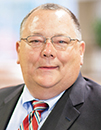
Chalk
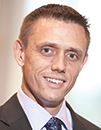
Weick
The initiatives are at various stages of development. Some programs will be mandatory, some optional. Some will be available both to the physician and the person's significant other.
Ogle, who created much of the Rapha plan, says he's excited about Rapha's potential to foster community among Mercy's physicians. He said, physicians "rarely have a close group of friends and community where they can talk about their own heart-level issues and feelings.
"Without soul-level connection, physicians run the risk of becoming numb and callous, eventually leading to high levels of burnout," Ogle says.
Achilles heel
Chalk says physician burnout is an Achilles heel for the industry.
According to a 2014 survey by the American Medical Association and the Mayo Clinic, about 54.4 percent of participating physicians experienced at least one sign of burnout. That was up nearly 10 percentage points from a similar survey conducted in 2011.
Another study, the "Medscape Lifestyle Report 2016: Bias and Burnout," found that the top three causes of burnout were having too many bureaucratic tasks, working long hours and coping with the increasing computerization of the practice of medicine. That report was based on the responses of more than 15,800 physicians.
Physician burnout can impact the culture of a medical facility. Emotionally strained doctors can lash out at other team members, says Weick. Chalk adds, "If physicians are disengaged, it's picked up instantly by their co-workers, and that can affect the whole clinic. And patients can pick up on it in a microsecond. That's not what we want to project."
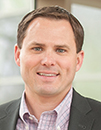
Ogle
Physician burnout can be very expensive for a provider organization. If a physician leaves, it can cost hundreds of thousands of dollars to recruit a replacement amid a doctor shortage, says Chalk. It can cost more than a million dollars to recruit a specialist, he says. It is expensive to recruit physicians because it often takes several years to get a physician practice fully functional, and yet many costs hit as soon as a physician is recruited. Such costs as sign-on bonuses, medical school loan forgiveness and pay prior to scaling up a practice may not be fully recovered, says Chalk.
Expanding reach
Rapha planning documents say within three years, the program should result in increased physician engagement with Mercy's mission; decreased burnout, depression, anxiety and substance abuse issues; increased physician retention rates; increased patient satisfaction scores and increased physician satisfaction.
Mercy plans to expand Rapha beyond employed physicians, to include other professional staff and contracted providers. Ogle says, "Our hope is to develop the program for nurses, support staff, emergency personnel and executives in health care." Mercy wants to offer the program to other health care systems too.
"The more people we connect, the better," he says.
Kennen says, "This initiative is so critical. It's so important that someone is looking out after their employees. You're showing that you care about me and my family. It's the Mercy way — a caring way — to do this.
|
Mercy regions offer variety of wellness, formation activities for physicians
Prior to the advent of the systemwide wellness initiative for physicians, regions within the Chesterfield, Mo.-based Mercy health system shaped physician wellness programs that:
- Present expert speakers. The wellness and formation committee for Mercy's East Community, which includes the greater St. Louis metropolitan area as well as some surrounding rural communities, hosted separate presentations by Dr. Dike Drummond and Dr. Jill Kruse on burnout and wellness. Drummond is a family medicine physician and national expert on burnout. Kruse is the founder and medical director of a physician wellness program at Avera Health of Sioux Falls, S.D.
- Offer workshops to reinforce the physicians' connection with mission. In Mercy's Fort Smith, Ark., region, a mission integration committee presents localized Heritage Tours for clinicians and their families — the tour stops around Fort Smith area sites with historical significance for the Sisters of Mercy who founded and once sponsored Mercy's Fort Smith facilities. The committee invites clinicians to serve at a local homeless shelter, as a formation opportunity. The committee hosts workshops to guide physicians in finding deeper meaning in their day-to-day activities and renewed inspiration in the health arts. The committee annually hosts a Thanksgiving dinner with Sisters of Mercy for physicians and their spouses.
- Form physicians. Mercy's Oklahoma region offers a 12-session wellness and formation program for physicians. Session topics include holistic healing, physician well-being, the vocation of the healer, ethics, the Mercy heritage, Catholic social teaching and leadership.
Regions will continue to offer such programming in addition to adopting tools and programs from the Mercy systemwide initiative.
|
Copyright © 2017 by the Catholic Health Association
of the United States
For reprint permission, contact Betty Crosby or call (314) 253-3490.